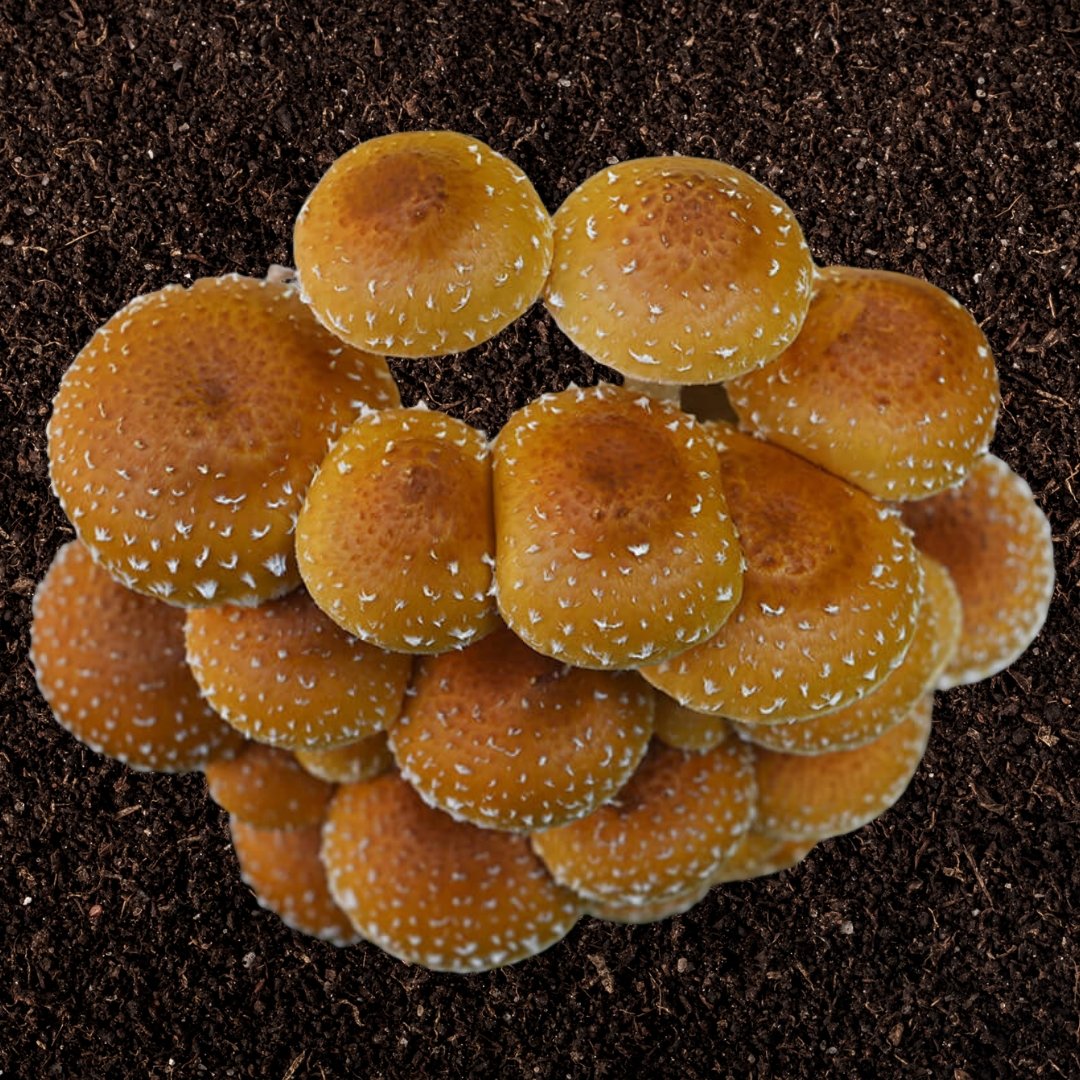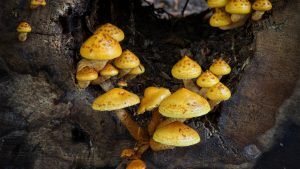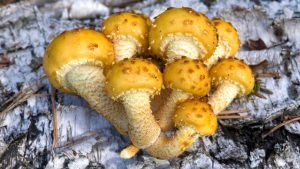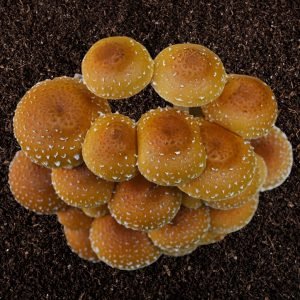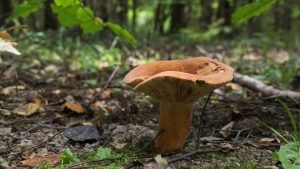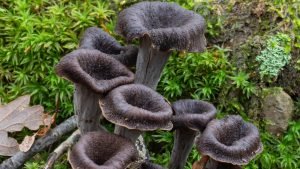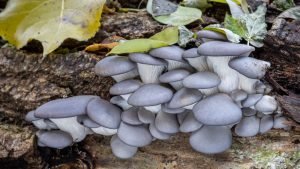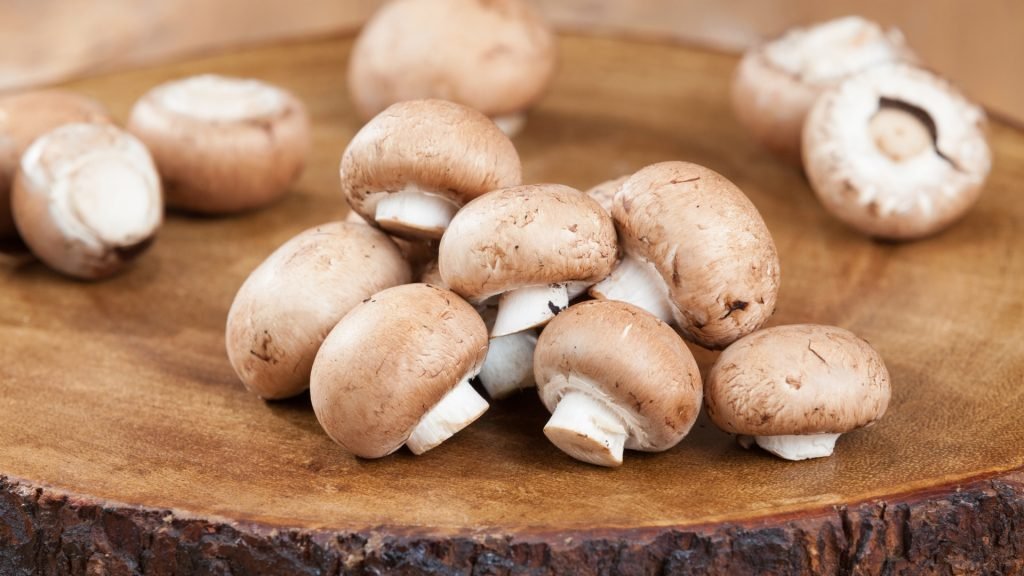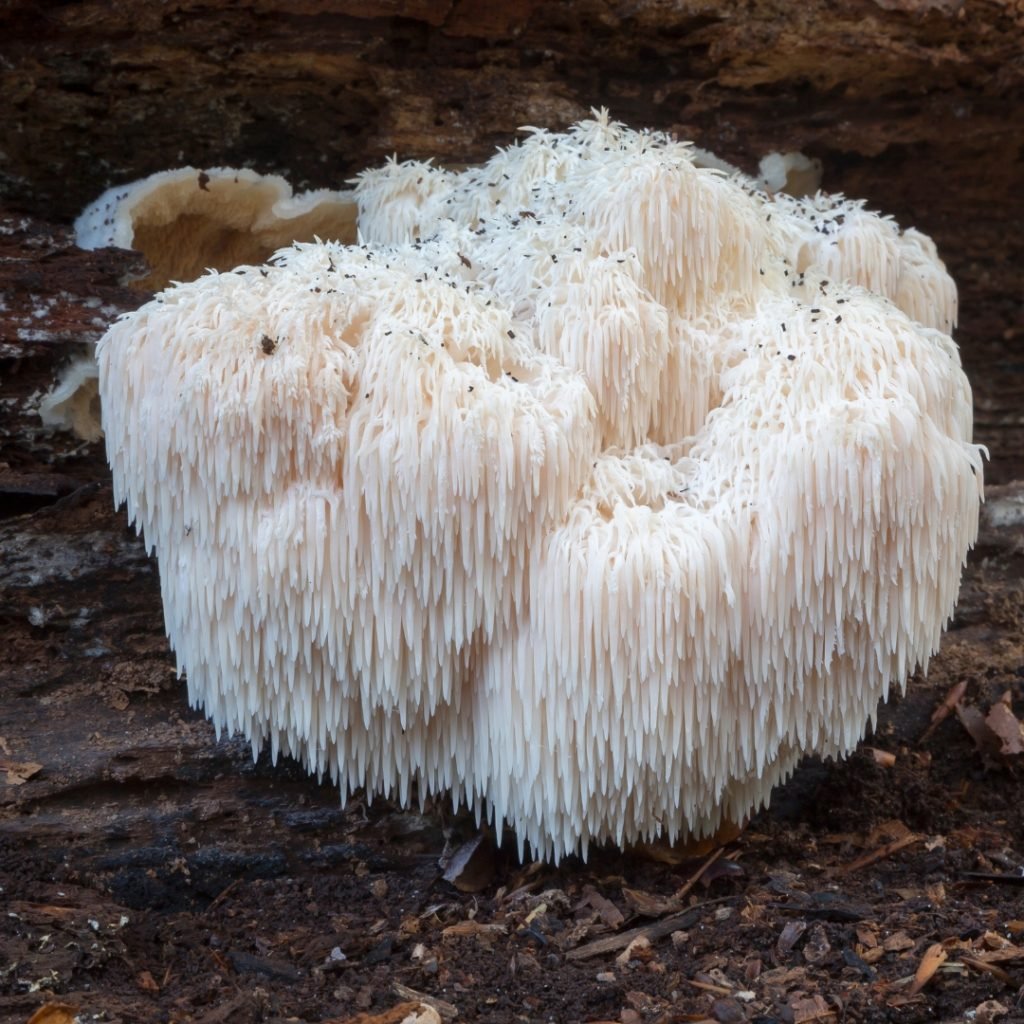SCIENTIFIC NAME:
(Pholiota Adiposa)
COMMON NAME(S):
Chestnut Mushroom | Shimeji | Chestnut Bolete | Chestnut Agaric | Chestnut Pholiota
I-NAME:
GCN
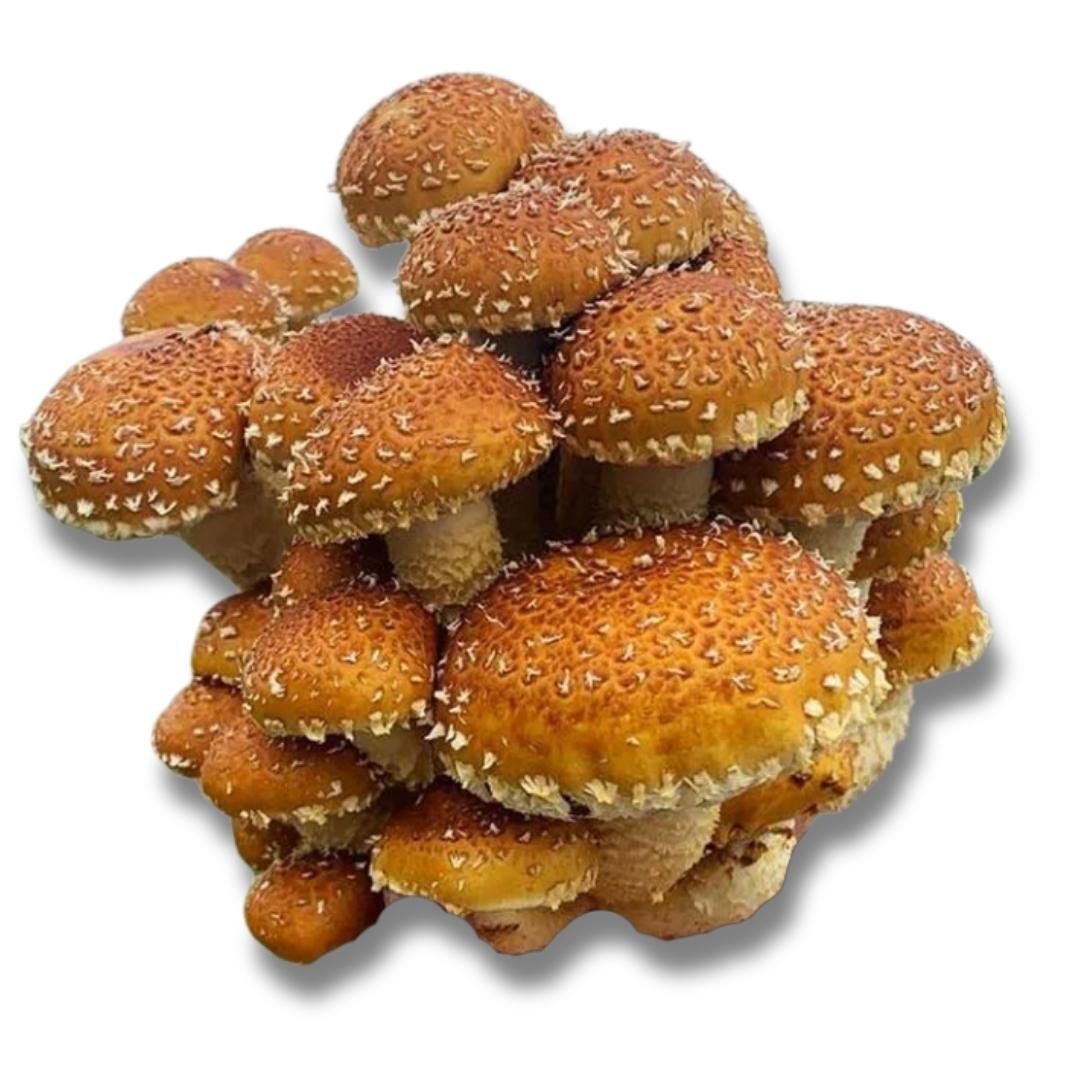
SPORE COLOR:
BROWNISH-YELLOW
Pholiota Adiposa, also known as Chestnut Mushroom or Shimeji in Japanese, is a small to medium-sized mushroom found widely across Northern Hemisphere temperate regions. Its common names are a tribute to its chestnut-brown cap, which imparts an aesthetically pleasing appearance to this mushroom.
Description:
Pholiota Adiposa boasts a distinct chestnut-brown cap that gives it its common name, the Chestnut Mushroom. The cap is convex to flat, growing to 2-7 cm in diameter. The gills are adnate to slightly decurrent, close, and light yellow. The stem is slender, yellow, and bears a thin ring. Pholiota Adiposa does not contain psilocybin or similar psychoactive compounds. It is a safe and edible mushroom when properly cooked.
Intended Uses:
⚕ Medicinal: Pholiota Adiposa is recognized for its anti-inflammatory, antioxidant, and potential anticancer properties.
🍄 Ascetic-Looking Only: Its attractive chestnut-brown cap makes it a beautiful addition to any mushroom collection or display.
🍽 Edible (Gourmet): It’s highly regarded in many culinary practices, particularly in East Asian cuisine, for its savory, umami flavor.
🏫 Teaching and Education: This mushroom can be an excellent subject for teaching about fungal biology, mushroom cultivation, and the role of fungi in culinary and medicinal applications.
👩🔬 Research: Scientists continue to study Pholiota Adiposa for its nutritional and potential medicinal benefits, as well as its use in bioremediation.
💓 Breeding: Breeders may find this mushroom interesting due to its unique characteristics and potential for hybridization.
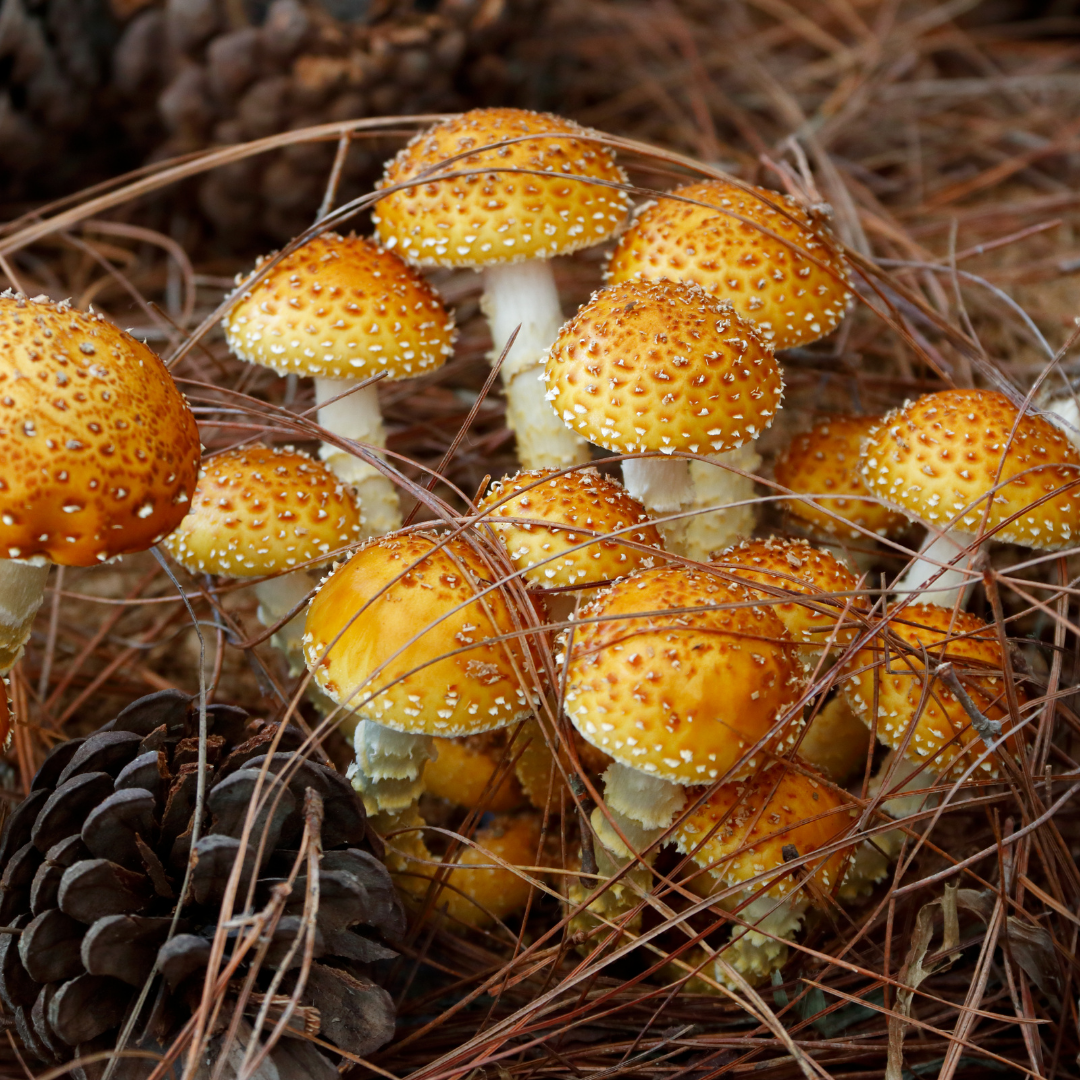
Historical & Cultural Info:
Pholiota Adiposa, widely used in East Asian cuisine, has a long history in traditional medicine. It’s known for its nutritional benefits, including a high protein content and a rich assortment of vitamins and minerals.
No posts found!
Chemical Composition:
Pholiota Adiposa contains a significant amount of proteins, carbohydrates, vitamins, and minerals. It also contains bioactive compounds like polysaccharides, phenolic compounds, and triterpenoids. As for mycotoxicology, no toxic compounds have been identified in this mushroom when properly cooked.
Health Benefits:
Pholiota Adiposa is known for its anti-inflammatory, antioxidant, and potential anticancer properties. Its rich nutrient profile also contributes to overall health and well-being.
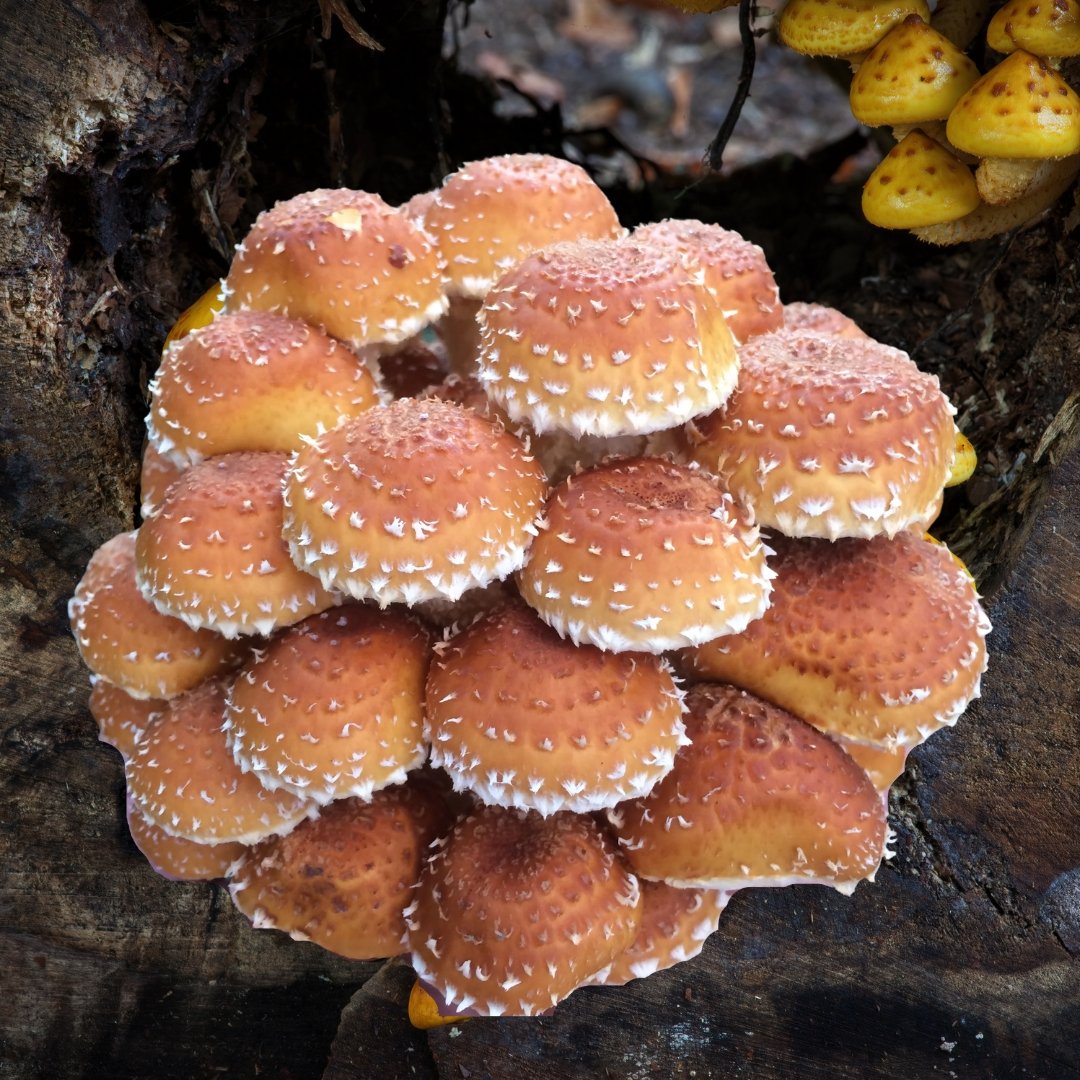
Cautions & Warnings:
Pholiota Adiposa is safe to consume when properly cooked. However, like many mushrooms, they should not be consumed raw due to the presence of harmful compounds that are neutralized by heat. It is important to consult a doctor before consuming any mushrooms, especially if you have a pre-existing medical condition or are taking medication.
Final Considerations…
Pholiota Adiposa offers a unique blend of taste and health benefits. Its aesthetic appeal, nutrient richness, and potential medicinal benefits make it a prized addition to any mushroom collection. Check out the 🍄 Mushroom Network’s Marketplace to see what’s available. But hurry, our shelves are constantly evolving, and you wouldn’t want to miss out on this wonderful mushroom. Join our growing network of Patrons, Genetics, and Mycologist Vendors only on the 🍄 Mushroom Network!
No posts found!
No posts found!
Related Articles:
Unlocking the Nutritional Secrets of the Chestnut Mushroom
Step into the world of Pholiota Adiposa, commonly known as the Chestnut Mushroom, a gastronomic...
Read More...Exploring the Culinary & Health Wonders of Pholiota Adiposa
Welcome to the extraordinary world of Pholiota Adiposa, an underrated culinary gem and health enhancer,...
Read More...Pholiota Adiposa: The Mushroom with a Chestnut Appeal
Discover the allure of Pholiota Adiposa, a mushroom distinguished by its unique aesthetic charm and...
Read More...Chestnut (Pholiota Adiposa)
SCIENTIFIC NAME: (Pholiota Adiposa) COMMON NAME(S): Chestnut Mushroom | Shimeji | Chestnut Bolete | Chestnut...
Read More...Other Mushroom Species To Research:
Cauliflower Mushroom (Sparassis Crispa)
SCIENTIFIC NAME: (Sparassis Crispa) COMMON NAME(S): Cauliflower Mushroom | Hanabiratake | Western Cauliflower Fungus |...
Read More...Blue Meanies (Panaeolus Copelandia Cyanescens)
Welcome, fellow mycophiles and curious minds, to the enchanting world of Blue Meanies! As we...
Read More...Oak Milkcap (Lactarius Quietus)
Welcome, mycology enthusiasts and nature lovers! Today, we’re journeying into the quiet corners of oak...
Read More...Black Trumpet (Craterellus Cinereus)
Greetings, fungal aficionados and nature lovers! Today, we embark on a fascinating exploration of Craterellus...
Read More...Other Recommended Reads:
The Golden Princess: Breeding and Cultivating Agaricus Subrufescens
Welcome to the captivating world of mushroom cultivation, where nature’s treasures unravel in enchanting forms....
Read More...The Mighty Cordyceps: From Parasite to Medicine
About This Article: From parasite to powerhouse! 🌿🍄 Discover the journey of Cordyceps militaris and...
Read More...The Alluring World of Agar: A Deep Dive
Deep beneath the forest canopy, in the shadows of decay, lies a realm that many...
Read More...Unearthing the Potential of the Black Pearl Oyster Mushroom
In the mycological sphere, the Black Pearl Oyster Mushroom, scientifically known as Pleurotus Ostreatus, is...
Read More...Whoa there, Spore Sport! 🍄 Looks like you’re not logged in yet. Don’t you know what you’re missing? MYCO-CREDITS! Imagine all the fungal fun you could have. It’s like finding a Morel in May and not picking it. Tragic, right? Log In or Become a Myco-Patron and start racking up those credits. It’s more rewarding than finding a mushroom in your backyard! 🌟🏡

